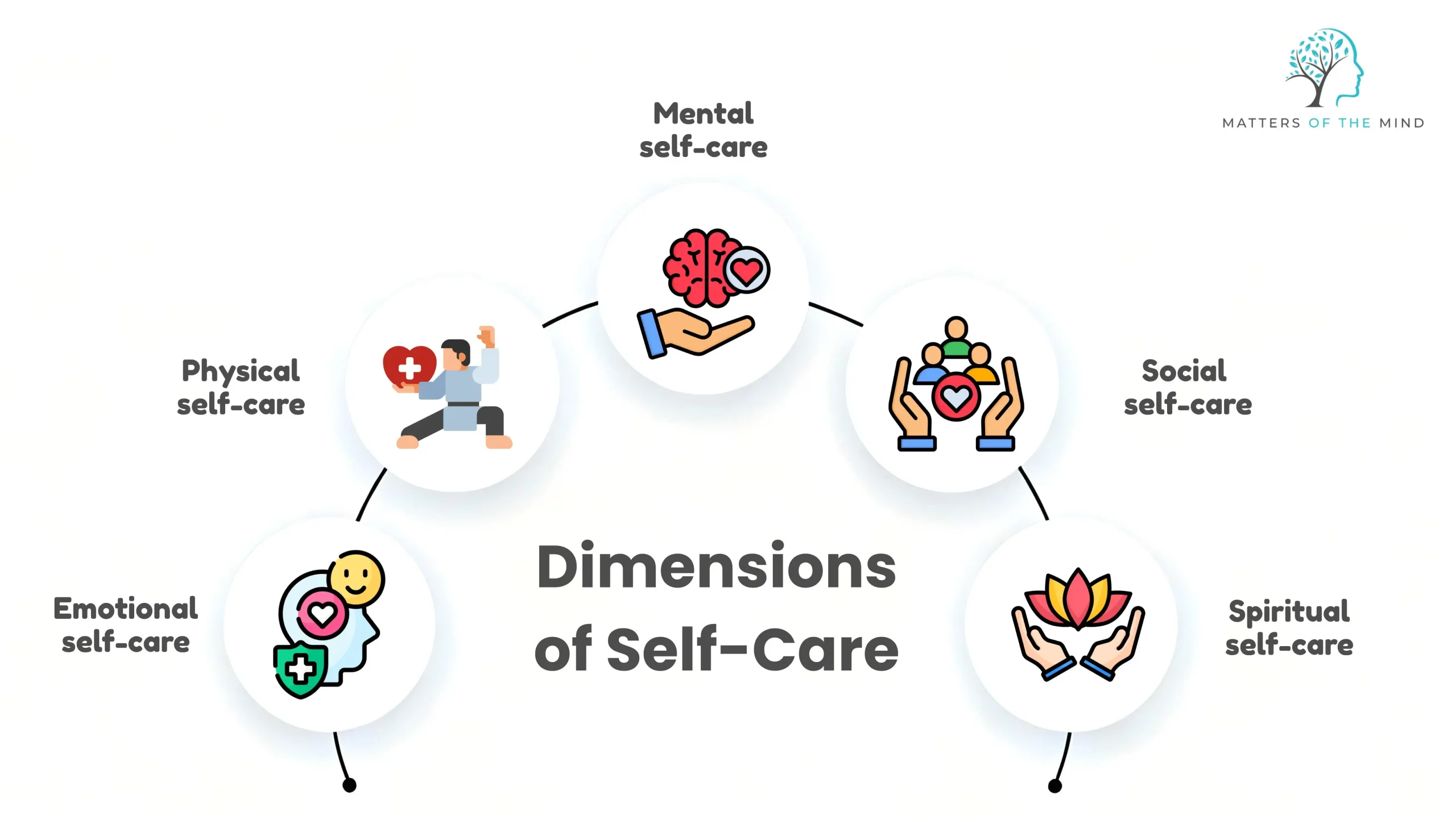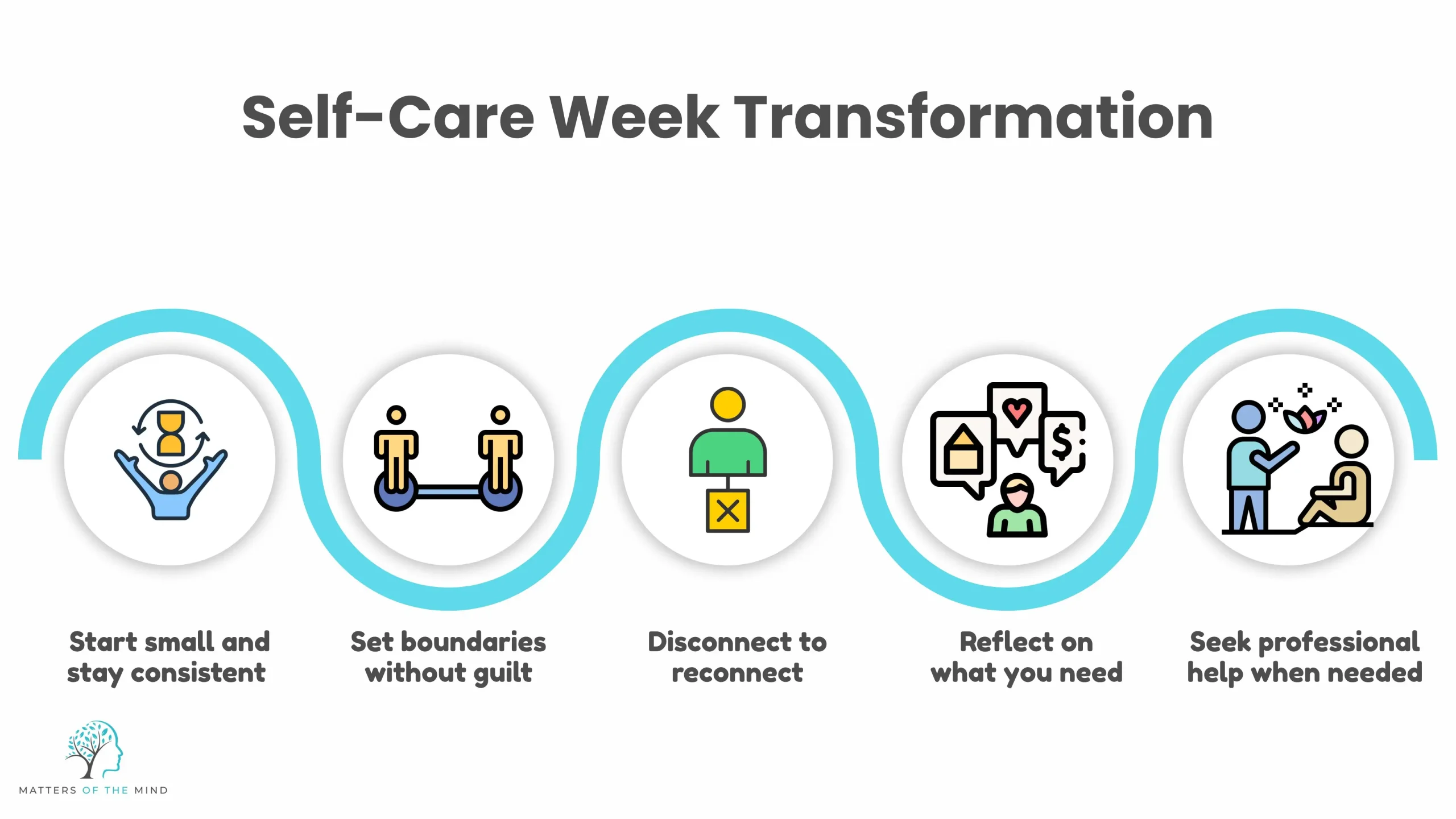Self-care has always been a controversial topic in every discussion. For some, this day is a gentle reminder to know and treat themselves with kindness, while for others, it feels like an indulgence, something selfish or unnecessary. But if we pause for a moment and truly recognise the time we give to ourselves, it raises an important question: when was the last time we genuinely cared for our own well-being?
We often go through our days wearing a smile, supporting family, friends, and colleagues, yet we rarely stop to nurture our inner world. National Self-Care Week is a reminder that self-care isn’t a luxury; it’s an essential part of maintaining mental, emotional, and physical balance. This week invites us to slow down, reconnect with ourselves, and reflect on what our minds and bodies truly need. It’s a time to create space for rest, healing, and mindfulness, so we can show up for ourselves and others with renewed energy, purpose, and clarity.
What is National Self-Care Week?
National Self-Care Week is an annual initiative that encourages individuals, communities, and organisations to prioritise their well-being. It focuses on empowering people to take active steps towards maintaining a healthy lifestyle, not just for a week but as an ongoing practice.
What is The Theme of National Self-Care Week 2025?
National Self-Care Week 2025, observed from 17th to 23rd November, is an annual initiative that inspires families, individuals, communities, and organisations to take charge of their well-being. Each year, this national movement highlights a specific theme that encourages people to explore new dimensions of self-care.
The theme for 2025 is “Mind & Body”, which reminds us that true well-being comes from nurturing both physical and mental health in harmony. It’s easy to care for one and overlook the other, but this year’s theme invites us to see them as deeply connected parts of the same whole. A calm mind supports a healthy body, and a strong body strengthens the mind. This week encourages everyone to pause, reflect, and take small but meaningful steps to support their mental and physical well-being. It’s about integrating self-care in everyday life, not just an afterthought but a healthy practice.
By embracing the “Mind & Body” theme, we learn to listen more closely to ourselves, to notice when our minds are overwhelmed or when our bodies need rest, and to respond with kindness, balance, and care.
Why Self-Care Matters More Than Ever?
A mental health psychologist often emphasises that self-care isn’t about isolation; rather, it’s about refreshing your mind and soul for inner peace. It allows the nervous system to reset, improve focus, strengthen relationships, and enhance our overall sense of self-worth. When we care for ourselves consistently, we also build emotional capacity in healthy ways.
Different Dimensions of Self-Care

1. Emotional self-care
Taking time to process emotions rather than suppressing them is vital. Practices like journaling, therapy, or talking with trusted friends allow us to understand and manage our feelings better. Emotional self-care is also about self-compassion, speaking to yourself kindly, especially during difficult times.
2. Physical self-care
3. Mental self-care
4. Social self-care
5. Spiritual self-care
How To Celebrate Self-Care Week Mindfully
National Self-Care Week isn’t about doing everything at once; it’s about intentional choices that bring you closer to well-being. Here are a few ways to make the most of this week.

1. Start small and stay consistent
2. Set boundaries without guilt t
Learning to say no is one of the kindest things you can do for yourself. Boundaries protect your time, energy, and peace. They help you show up more fully when you choose to say yes.
3. Disconnect to reconnect
4. Reflect on what you need
5. Seek professional help when needed
Need support in your self-care journey?
Take the first step towards better mental and emotional well-being with Dr Kavita Deepak Knights, a trusted mental health psychologist in Windsor, Berkshire. Discover a safe space to reconnect with yourself and build healthier coping strategies.


